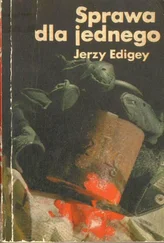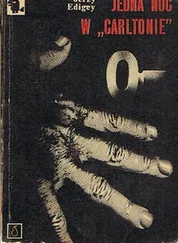The chessboard, which we would place on the table covered with a sky blue oilcloth in our gigantic kitchen, was similar to Tolstoy’s. I don’t wish to say anything by this. Nor do I multiply cheap effects, nor do I make second-rate jokes. I simply state that our chess set in the old house in Wisła originated — like the chess set they played on in Yasnaya Polyana — in those mythic epochs when the chessboard and the box were separate. Granted, the genius who came up with the idea that the box, after it was opened out, could become the chessboard, had made his discovery. And in fact — as is evident from old prints, at the least — he had made his discovery ages ago. But luckily this discovery hadn’t made it to Cieszyn Silesia by the fifties of the twentieth century. And if it had made it to Cieszyn Silesia, it hadn’t made it to Wisła. And if it had made it to Wisła, it hadn’t made it to our house.
An atavistic-sentimental antipathy, stemming from those times, toward the box that becomes a chessboard once it is unfolded , does not — of course — keep me awake at night. I am not consumed day and night by that hatred, but it equals my antipathy to magnetic chess pieces. On the whole, I try to fight my own neuroses. But that one I cultivate.
First (first!) you have to lay out the chessboard. Then (then!) pour out the chess pieces from the box. Pour them out on the chessboard! Not onto the table! No pouring out onto the table! And while placing the pieces, and while putting the pieces away, the chessboard must be in place! Before play, the pieces are to be in the box; during play, on the chessboard. Outside the chessboard stand only dead chess pieces!
Father must have had the same phobias. That’s why he insisted on the drawer, and at first even on two drawers. He played pretty well. Not as lightning fast as Uncle Ableger, who adored playing tournament chess and imposed a frightful tempo, drove his opponent on, and — I have to admit — mostly won, although sometimes in his frantic rush he committed blunders you wouldn’t believe. And not as fiercely as Grandma Pech, who couldn’t stand to lose. And not as hedonistically and generously as Grandpa Pech, who, for the sake of beauty and amusement, forgot about results and, to a certain extent, specialized in losing. And not so prayerfully as Uncle Paweł, who thanked God after each successful move.
Father didn’t play either so lightning fast, or so fiercely, or so sybaritically, or so piously — but efficiently and mercilessly enough. After all, chess is merciless by its very nature. In the art of moving chess pieces, there can be no mercy — at most, there can be an error in the art.
I think that, as a child, I must truly have been not so bad. I must have been — because I don’t remember anything. And I remember all the ruined games: the crumbling dam we had made out of stones over the stream in Partecznik; a lost match with a IIc team; the disaster in the church trivia contest — when I said that it was Cain and Abel who were twins, rather than Jacob and Esau; lost points during ping-pong tournaments in the Lutheran Church House. I remember all the blocks in the evening games of dominoes; all the disturbed oars and boat-hooks in the pile of pick-up-sticks; all the un-cast sixes in games of Sorry! on holiday evenings; and all the unnamed mountains and rivers in States, Cities — but I don’t recall any lost chess games. In other words, I must have won. And won for real, because there was no custom of allowing a young person to win for encouragement — not in our house, nor in Lutheran houses in general. On the contrary — there was the principle of humiliating, from the very beginning, the young person’s every ability, grinding him down, kicking him in the ass. If he manages to cope, there is hope for him, if not — oh, well — the Lord God welcomes various sorts at His table.
I remember the flow and the musical naturalness of play. I didn’t have the sense of the infallibility of any move — I had the sense that there simply wasn’t any other move. Probably, in my case, the famous cognitive innocence had to do with chess, and not with drawing. Most children, as is well known, draw in interesting ways at the beginning; once they grow up a little and begin to draw more consciously, that is to say, to lie, to contrive — the gift vanishes. I grew up a little, began to contrive, the gift vanished. Nowadays I rarely play, and for the last five years all the more rarely, since I play exclusively with myself. If I come upon a chess puzzle in some journal, I am usually able to solve it, and usually — without bragging — it doesn’t take me more than a quarter of an hour.
Today’s newspapers rarely publish chess puzzles. I don’t intend in the least to whine about the fact that we have come to live in evil times, in which lamentable computer games have supplanted the game of kings, or anything of that sort. Absolutely not. I don’t have inclinations toward those sorts of banalities, and when, in moments of weakness, they come over me, I summon up the rest of my mental forces, and I fight them in their infancy. Besides all that, I believe that all “games and entertainments of kings” ought to be limited to the elite, and that, in general, only those things that a small, the smallest number of persons cultivates and practices are worthy of note.
I remark upon the sporadic presence of chess problems in today’s journals in order to make excuses for a certain eccentricity. Namely, browsing through the newspapers and magazines at the Empik bookstore — not with the goal of finding a chess puzzle, in any case, not exclusively with that goal — I noticed that a weekly called New State , which is completely unknown to me and always just takes up space on the shelves, publishes not so much chess puzzles as a special chess rubric, even on a decent level, and that, in addition, those half columns (true, they are of a small size) were edited by a rather — judging by the picture — attractive female chess-master with the exotic name of Iweta. I began to buy it rather regularly. I cut out the descriptions of the games and the commentaries by the attractive female chess-master with the exotic name; the rest of New State I throw away without reading — so much for my eccentricity.
I have three chess sets. A large one (“Classic?” “Royal?” “Olympic?”) — clearly I’m not certain of even the basic terminology; in any case — the chess board measures sixteen inches on a side — it is significantly bigger than the one in Wisła, but the shape of the figures is identical to those that perished together with the house, which has turned into ruin and dust. Pawn, rook, horse, runner, lady, king. The ancient pattern and — since they are taken from my world — the ancient names. No completely unfamiliar knight, bishop, queen. Whenever I hear or read that someone makes a move with his knight, bishop, or queen, I’m not certain at first what game we’re talking about. I’m exaggerating — but only slightly and for symbolic effect. Further — I’m ashamed to admit it — I also have magnetic chess pieces. Yes, it’s true. Small, classical, but, nonetheless — magnetic. It is — it goes without saying — a piece of shoddy barbarity.
Just as the genuine art of carpentry should be practiced without a single nail, so in genuine chess there is no place for any metal elements. Far greater principles than these are regularly broken for the mother of all shoddiness: human convenience. Alleged convenience. Supposedly in certain situations — for instance, on a trip — it is extremely convenient to play with magnetic chess pieces. I don’t know. I avoid travel. Supposedly not only in certain, but in absolutely all situations, computerized chess is even more convenient than the magnetic version. Here I know even less. I use a computer exclusively as a typewriter. For me, the first is worse than the second, and the second is worse than the first. Magnetic chess is worse than the computerized version, but also the computerized is worse than the magnetic. As in life: all scales are in sharp decline. All scenarios are black. True, computerized pieces of shit will supplant magnetic pieces of shit, but this is small consolation, because, seemingly annihilated by the new thing, the slightly magnetized freaks won’t disappear at all; rather they will take on a venerable patina and will become rarities sought after by collectors of twentieth-century design, and perhaps even of twentieth-century art. The circle is closing. The loop is tightening. But I give my word of honor: it wasn’t for the patina that I bought the magnetic chess set.
Читать дальше












